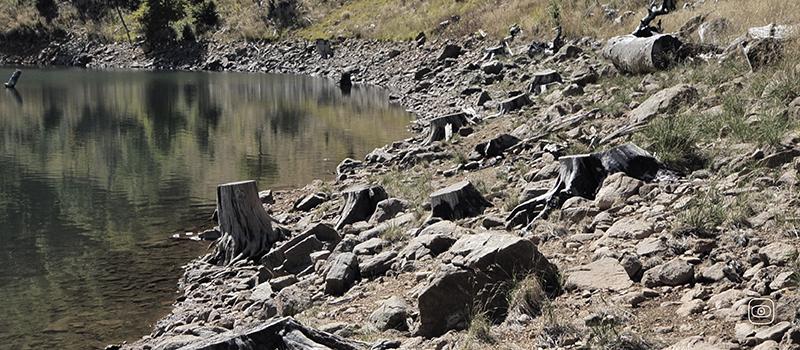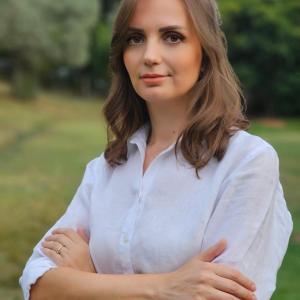The team focused on uncovering what is happening to the forests and new hydropower projects, and could be behind it.
Deforestation has hit the Balkans strongly in the past two decades. In North Macedonia, around 35,000 m3 of illegally cut wood is confiscated per year. The country lost around 200,000 hectares of forests through fires in a period of around 20 years. Only last year, around 23,000 hectares were lost due to construction works. One of the black spots of deforestation in the country is the National Park of Shebenik-Jabllanica, which is shared with Albania. The Macedonian institutions are trying every year to plant around 1,000,000 new trees, but not all these young trees survive the first years.
In Albania, according to the official data, the forest area affected by illegal logging over the years amounts to 8%, or 96,067 hectares. Experts say that the de facto figures are several times bigger, even though everyone wants to stay away from the "trap of numbers". Even the forests’ moratorium, entered into force in 2016, has not stopped the cutting of forests on a large scale. In its seventh year, wood exports increased by 44.6%.
The team looked at the National Park of Lurë-Mali i Dejës, in the South-East region of the country, one of the most beautiful natural parks that became a victim to one of the biggest environmental massacres. Locals are often blamed for deforestation in their own forests, but experts interviewed underline the fact that villagers with axes cannot deforest hundreds and thousands of hectares.
Another major reason for deforestation in Albania is fire. The team investigated the region of Vlora, in Southern Albania where many man-caused fires have occurred in the protected areas.
Skavica hydropower project of 210 MW, probably 147 metres high, is planned to be built in the Drin River. Its huge reservoir would cover some 16,000 hectares of land, mostly agricultural land and forests but also 41 villages. Most of the inhabitants are against this project, and they have been protesting against it for more than 20 years. Experts say that, if built, Skavica will have the worst social impacts of any dam built in Europe.
The situation in North Macedonia is also alarming. The country has 125 small hydropower plants, and 90 of them are built because of the “feed-in” tariff. Some of them are owned by politicians or their relatives. Some citizens found out that a small hydropower plant will be built in their village only when the excavator arrived. Construction has been carried out in protected areas in the Macedonian mountains.
This, combined with the lack of environmental assessment which should be normally carried out before approving any of such projects, is the image of the production of Macedonian green energy. The secrecy behind the process of issuing licences has for a long time been and still is a problem not only for the locals but also for national and international NGO’s, like Bankwatch. The latter managed to convince the international financial institutions to withdraw from some projects that had been approved of and not to invest in new ones because the small hydropower plants are often built or planned to be built in protected areas.
Photo credit: Kristi Çavo
AWARDS
In April 2024, "The Fragile Forests" documentary won the first prize at the competition "Facts and misinformation about the human environment" organised by the Council of Media Ethics in Macedonia. The competition was supported by UNESCO and the Delegation of the European Union to North Macedonia. More details.
In October 2024, Alexandar Metodijev and Suzana Miceva received for this project the 3rd place in the EU Awards for Investigative Journalism in North Macedonia.




